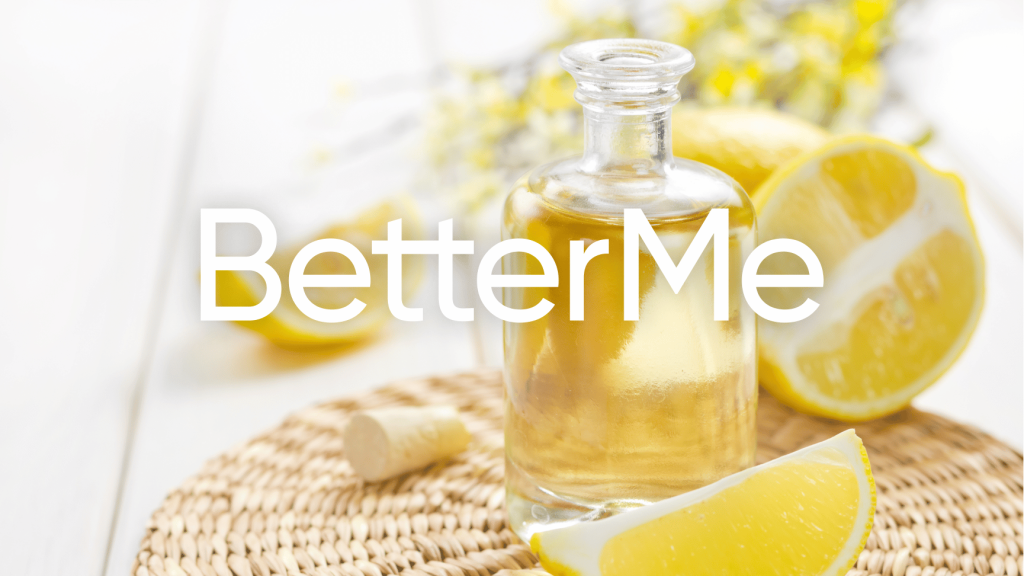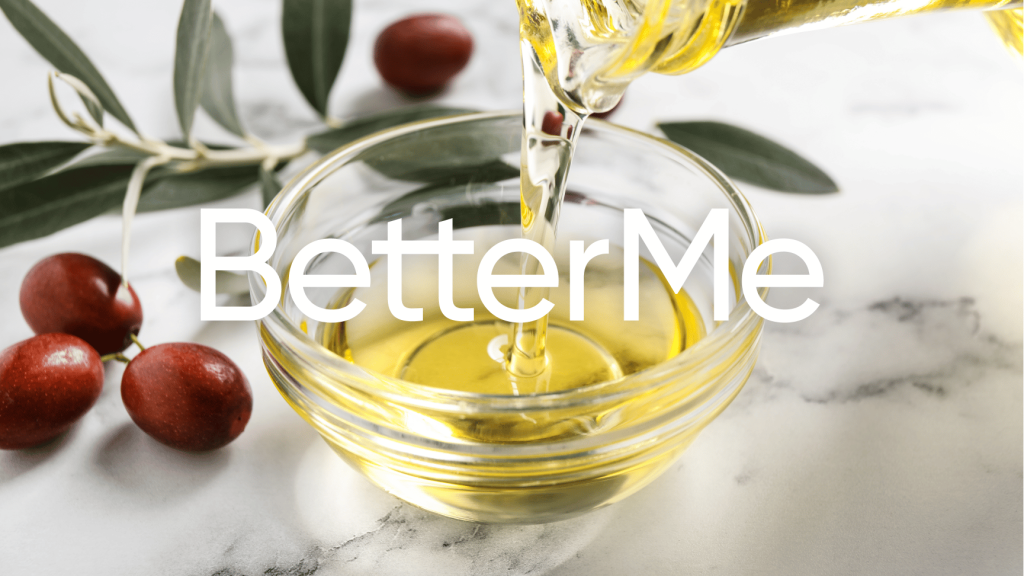Essential oils have been used for centuries to alleviate various physical and mental problems. One of the most prevalent choices is to use an essential oil for headache. These oils are versatile because they can be used in many different ways. From topical applications to luxurious soaks in the tub, you may select how to reap the benefits of your chosen essential oil. Several different essential oils are ideal for managing headache pain. These include lavender, peppermint, rosemary, eucalyptus, and chamomile. When choosing the best one for your headache you’ll need to determine the source of your pain, as each oil targets a different type of headache. From sinus to migraine to tension, there’s an essential oil to target your pain. Now we’ll explore the benefits of these five essential oils and how to use them. We’ll also consider how to properly select an essential oil to ensure you get the best results from the product you purchase. We’ll also explore the best essential oil for a headache. Read on for everything you need to know about essential oils for headaches.
What Are Essential Oils?
Essential oils are the results of taking extractions from plants and concentrating them. These extracts are produced by steaming or pressing various parts of the plants. These parts can include the bark, flowers, fruit, or leaves. In the process, compounds that produce the fragrance are captured.
They are a mixture of many different compounds from within the plant that combines to produce a unique odor. They are colorless liquids that have very pleasant scents.
It takes a significant amount of plant material to produce a small amount of essential oil, which can lead to the prices being quite high. For example, to make 1 pound of lavender essential oil, producers need 250 pounds of the flower (1, 4, 6)
What Are Essential Oils Good For?
Essential oils can be used in several ways to improve your health. They’ve been linked to the following benefits:
- Headache relief
- Boosting moods
- Nausea reduction
- Stress reduction
- Increased attentiveness
- Inflammation reduction
- Improved sleep
- Reduction of anxiety
- Pain reduction
- Killing bacteria, funguses, and viruses (1)
How Does Aromatherapy Work?
The inhalation and external application of essential oils used to treat mental and physical balance are the very foundation of aromatherapy. These oils have a very similar structural resemblance to hormones. Because of this, when they are inhaled or absorbed through the skin, they make their way to the brain, where they initiate a signal. This signal causes the release of neurotransmitters like serotonin, endorphin, and noradrenaline. The body’s response is to feel a sense of relief from the headache it is experiencing (6).
Read More: From Jojoba To Argan, Here’s A List Of What Oil To Use With Gua Sha
How To Use Essential Oil For Headache
When you use essential oils for headaches, it’s essential to not use them straight out of the bottle. While they are generally safe and will not cause adverse reactions, that cannot be said for undiluted quantities. When applying oils to the skin, they can cause stinging, burning, rash, or redness. You must dilute them in a carrier oil (2).
Common carrier oils include the following:
- Coconut
- Sweet almond
- Jojoba
- Avocado
- Apricot kernel
- Grapeseed
- Sesame
To make an effective application, you need very little of the essential oil of choice. Generally, you will need no more than ten drops of essential oil per tablespoon of carrier oil. Always do a skin patch test to avoid an adverse reaction when trying a new oil. Test a small spot on your forearm. If you have no reaction within 24 – 48 hours, you should be safe to proceed with a full application (5).
The primary methods used in aromatherapy are inhalation, local application, and baths. These allow the essential oils to penetrate the surface of the skin. After they’re in the system, they re-modulate themselves to begin working in a friendly manner at the site of pain in the affected area.
In addition, the same process is used to relieve other ailments, such as indigestion, insomnia, depression, muscular pain, skin ailments, respiratory problems, and much more. This therapy relies heavily on permutations and combinations to achieve the user’s relief. Essential oils are most beneficial when other aspects of the user’s life and diet are considered (6).
How To Apply Lavender Essential Oil For Headache?
Lavender essential oil for headaches is highly versatile in that you can apply it in many different ways. Commonly, it is diluted and applied to the skin. Alternatively, you can use an oil diffuser to get inhalation benefits. Lastly, there is the possibility to take a warm bath with the diluted oil added to the water (2).
Where To Apply Essential Oil For Headache?
When applying essential oils for headache relief, prepare your chosen oil by diluting it in a carrier oil. Then apply it directly to your forehead or temples. Ensure you do not get any in your eyes (2).
Can You Take Lavender Essential Oil Internally?
While most individuals apply lavender externally, use a diffuser, or make a bath, some essential oil products are safe for internal ingestion. However, it is best to speak to your physician to identify which product is ideal for you and your specific situation and condition (9).
If you’ve mustered up the courage to crush your weight loss goal, let Betterme take the sting out of this demanding process. Our app will help you restructure your habits, remold your life and crank up your fitness results!
What Essential Oil Is Good For Headache?
When choosing the ideal essential oil for your headache, you’ll need to consider a few factors to ensure you’ll get the best results. You’ll need to look at the following criteria before you purchase your essential oils:
- Brand: Not all brands are the same. Some are infinitely better than others. You’ll need to do some research before settling on the one you’ll purchase. Look for transparency in plant sourcing and processing practices.
- Label: The label should feature certain important information. If it doesn’t have this information, it’s likely not a reputable product. Look for the key phrase “100% pure essential oil.” Another important phrase you can look for is “certified organic.” You should also see information on the plant, such as country of origin, parts used, the extraction process, and common and Latin names.
- Quality: Focus your search on pure oils. Anything less than pure can have additives that harm the skin or lead to an allergic reaction (2).
- Pets and People: Some essential oil products are highly toxic to pets. Additionally, research is lacking on whether these products are safe for those who are pregnant or breastfeeding.
- Sensitivity: If you have sensitive skin, it’s possible for essential oils to cause contact dermatitis (3).
- Bottle: You’ll want a dark-colored glass bottle. Essential oils are potent, as they are highly concentrated. Because of this, they can dissolve plastic bottles over time, so it’s essential to have them in glass only.
- Avoid Fragrance Oils: Anything labeled as a fragrance or perfume oil is unsuitable for aromatherapy or topical use. These products are made from essential oils combined with chemicals or can be strictly chemicals. You need to look for products labeled with a single essential oil.
- Evaluate Prices: Pure essential oils are not cheap. If you find rock-bottom prices, you’re probably not getting pure oil (4).
With that in mind, several essential oils are linked to relieving headaches, from tension to migraine. We’ll look at the most popular options used and explain their benefits.
Read More: Fennel Oil Benefits, Uses, And Side Effects
Peppermint Essential Oil
One of the most commonly used essential oils for tension and migraine headaches is peppermint oil. Its menthol contents help ease muscle tension and pain. It has been documented as having extended benefits, including antiseptic, anti-inflammatory, antimicrobial, analgesic, antispasmodic, and decongestant properties (2, 6).
Research demonstrates that in placebo-controlled studies, participants with tension headaches have a better response to peppermint essential oil than placebo when alleviating pain. This indicates this essential oil may be an excellent option for relieving this type of headache (9).
Rosemary Essential Oil
The rosemary plant is an evergreen shrub found along the Mediterranean Sea and in sub-Himalayan areas. For centuries, in the folk arts, it has been relied upon for its antispasmodic and analgesic properties. In addition, it is known for providing users with antimicrobial, antioxidant, and anti-inflammatory benefits (12). Because of rosemary essential oil’s ability to relax muscles, it can be highly beneficial in alleviating headaches (2).
Lavender Essential Oil
You’ve probably heard of lavender essential oil being used for stress and relaxation, but did you know it can be used for your headache? A study conducted in 2013 showed a significant pain reduction in participants in just 15 minutes following the inhalation of lavender oil. In addition, lavender has been used over the centuries for its antidepressant and anticonvulsant properties (2, 7).
Chamomile Essential Oil
Chamomile is well-known as a relaxing tea used for unwinding and soothing symptoms of pain and discomfort. Others use it to gain relief from allergies and cold congestion. Chamomile essential oil has similar effects due to its ability to reduce inflammation throughout the body. In addition, chamomile is often relied on to reduce symptoms of anxiety and depression. Because of this, it can help alleviate headaches related to anxiety and stress. Furthermore, chamomile’s anti-inflammatory properties positively impact headaches (3).
Eucalyptus Essential Oil
When you have headaches caused by sinus issues, an ideal essential oil to turn to is eucalyptus oil. It has exclusive properties which can open your nasal passages, clear your sinuses, and alleviate the sinus tension causing your headaches. For an essential oil blend for headache, you can combine peppermint oil, eucalyptus oil, and ethanol. This blend will provide relaxing effects that target the muscles and mind, leading to the soothing of headaches (2).
In addition to clearing the sinuses, eucalyptus oil can also be used to reduce inflammation throughout your body. It may have properties that also treat muscle and joint pain. In addition, there is some indication that inhaling the oil can relieve pain and lower your blood pressure (3).
Reasons why BetterMe is a safe bet: a wide range of calorie-blasting workouts, finger-licking recipes, 24/7 support, challenges that’ll keep you on your best game, and that just scratches the surface! Start using our app and watch the magic happen.
What Is The Strongest Essential Oil For Pain?
Choosing the best essential oil for headache is more of a personal endeavor. One may not work as well as another, so you will need to try different oils until you find the ideal option to manage your pain. In some cases, you may need an essential oil mix for a headache. Combinations of various oils can increase the effects of each individual oil, making the results even greater.
In addition, different oils work for different types of pain. For example, if you suffer from migraine headaches, you would not want to select an essential oil for tension headaches. The two types of headaches stem from different sources and respond to different treatments (5).
Final Thoughts
You have many choices for the perfect essential oil for headache. However, what works best for someone else may not be ideal for you. You’ll need to evaluate the properties of each oil you’re interested in trying so that you can find the one best suited to your type of headache. Trying to manage a migraine with an essential oil that manages sinus headaches will likely have no effects.
When choosing your essential oil, it’s critical to find pure oils with no chemical additives. These additives will make them unsafe for aromatherapy and topical use, negating their healing benefits. In addition, those marketed as fragrance oils can increase the likelihood of a headache instead of mitigating it. If you’re unsure about anything, always consult with your medical provider before deciding.
Now that you know more about the benefits of essential oils in managing headaches, you can try them for yourself. Always remember to do a skin patch test if you plan on applying them directly. Additionally, don’t forget to dilute them with a carrier oil. It’s essential to ensure you won’t have a skin reaction to using it. Which oil will you try for your headache?
DISCLAIMER:
This article is intended for general informational purposes only and does not address individual circumstances. It is not a substitute for professional advice or help and should not be relied on to make decisions of any kind. Any action you take upon the information presented in this article is strictly at your own risk and responsibility!
SOURCES:
- 11 Essential Oils: Their Benefits and How To Use Them (2021, health.clevelandclinic.org)
- 5 Essential Oils for Headaches and Migraine Attacks (2022, healthline.com)
- 5 of the most effective essential oils for headaches (2022, medicalnewstoday.com)
- Aromatherapy: Do Essential Oils Really Work? (n.d., hopkinsmedicine.org)
- Can Essential Oils Help with Pain Relief? 13 Oils to Try (2022, healthline.com)
- Essential oils used in aromatherapy: A systemic review (2015, sciencedirect.com)
- Lavender and the Nervous System (2013, ncbi.nlm.nih.gov)
- Lavender essential oil in the treatment of migraine headache: a placebo-controlled clinical trial (2012, pubmed.ncbi.nlm.nih.gov)
- Lavender: Uses, Side Effects, and More (n.d., webmd.com)
- Peppermint oil in the acute treatment of tension-type headache (2016, pubmed.ncbi.nlm.nih.gov)
- Review of aromatherapy essential oils and their mechanism of action against migraines (2021, sciencedirect.com)
- Therapeutic effects of rosemary (Rosmarinus officinalis L.) and its active constituents on nervous system disorders (2020, pubmed.ncbi.nlm.nih.gov)
















